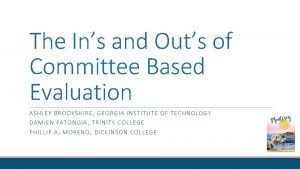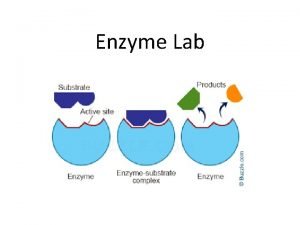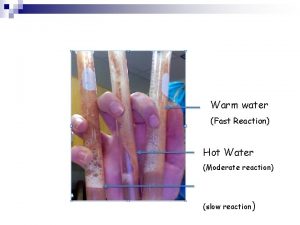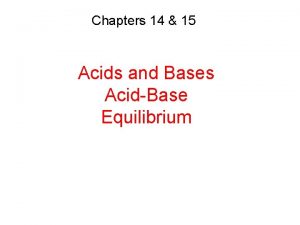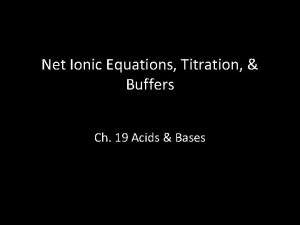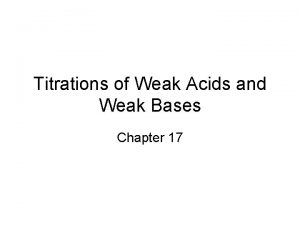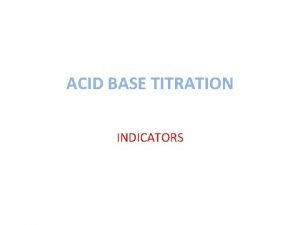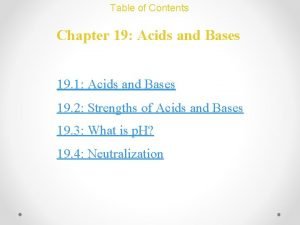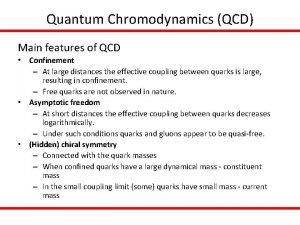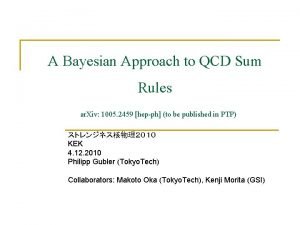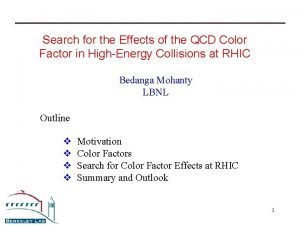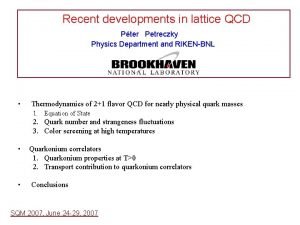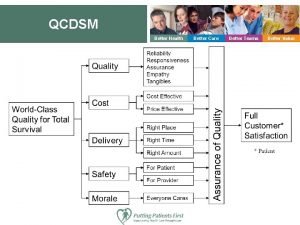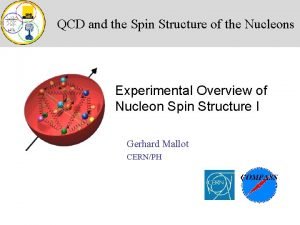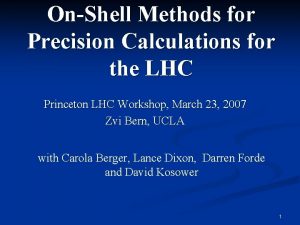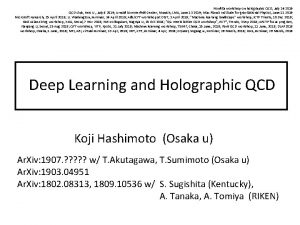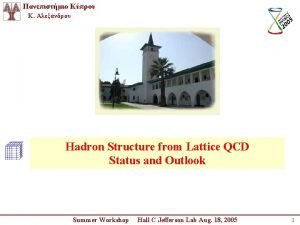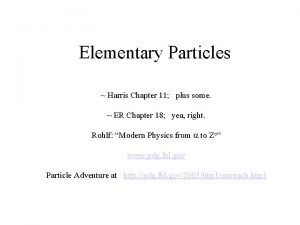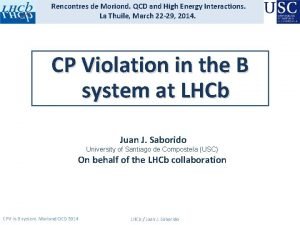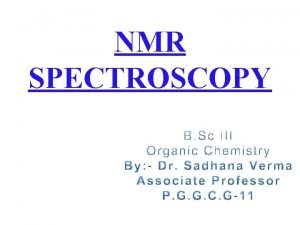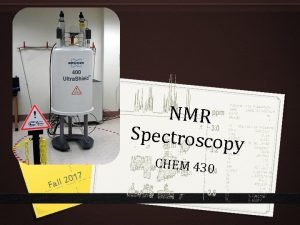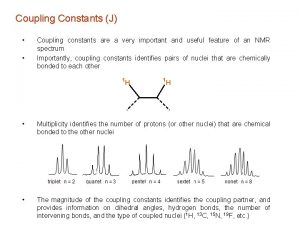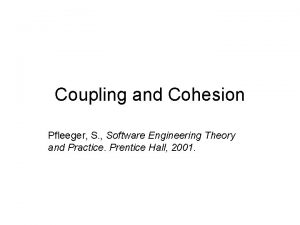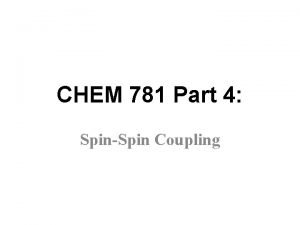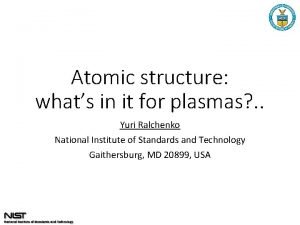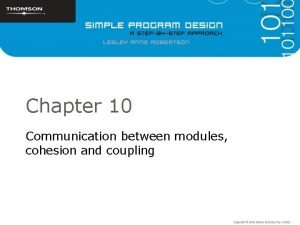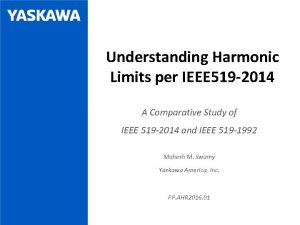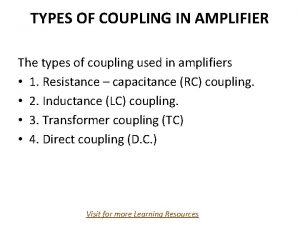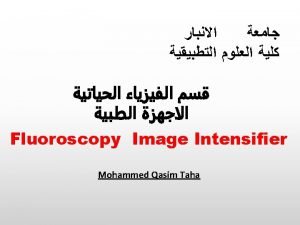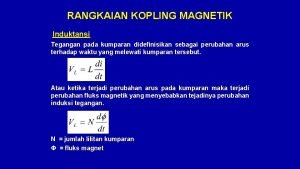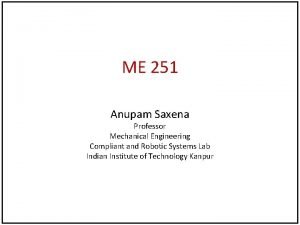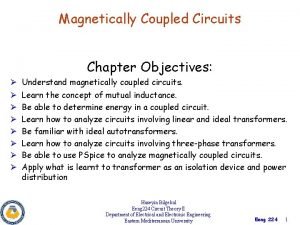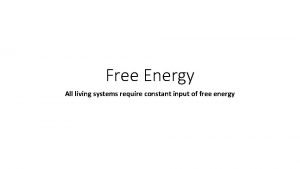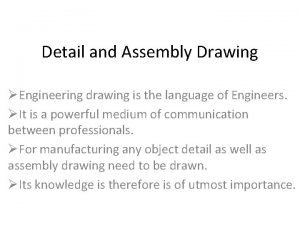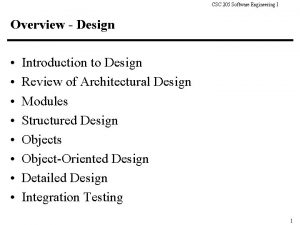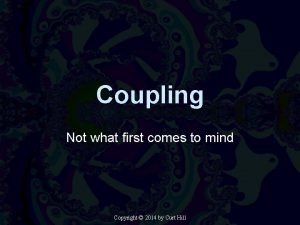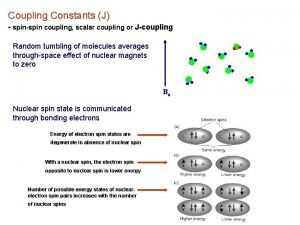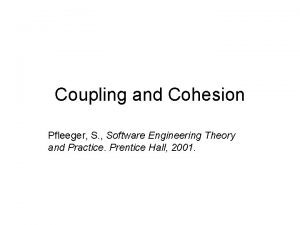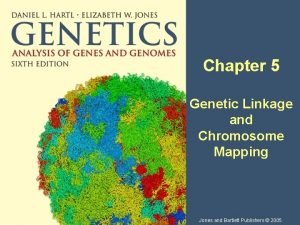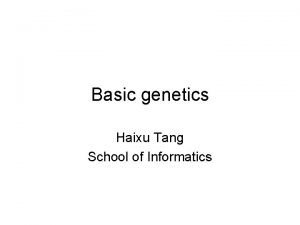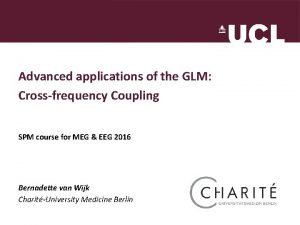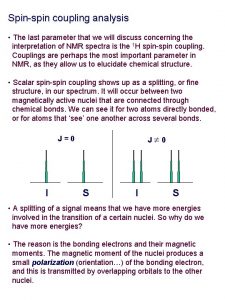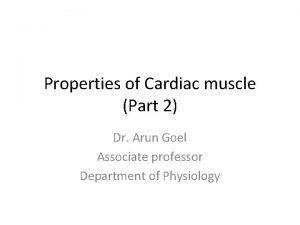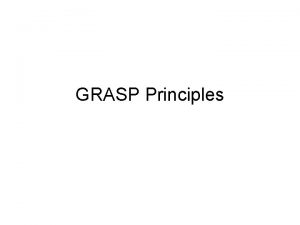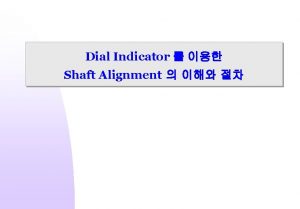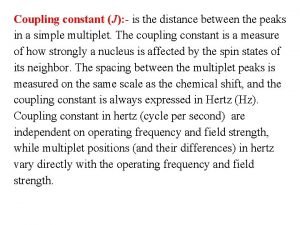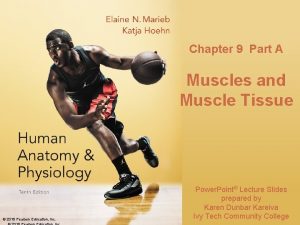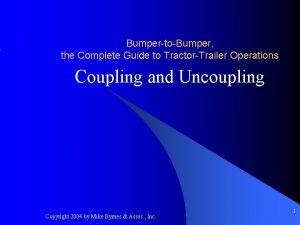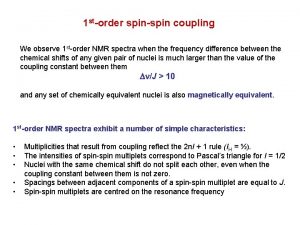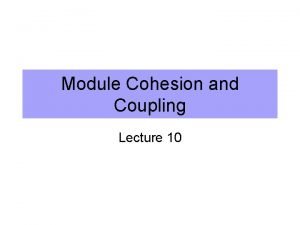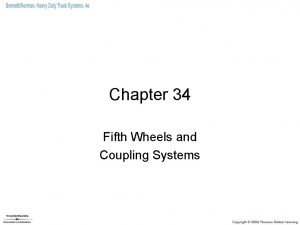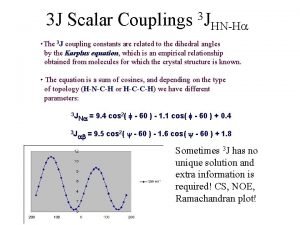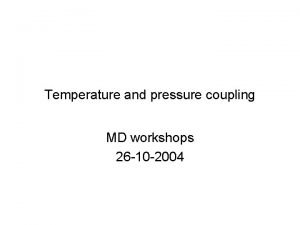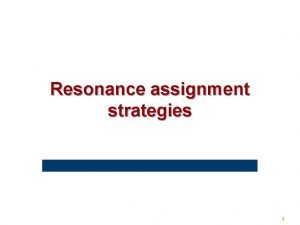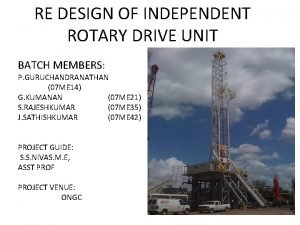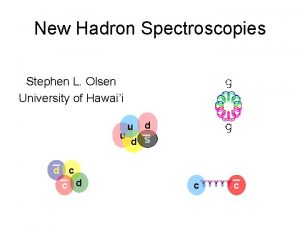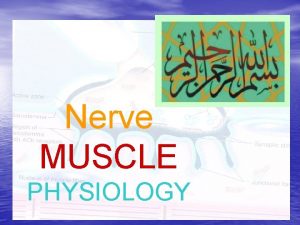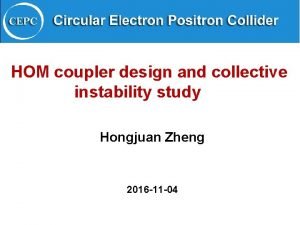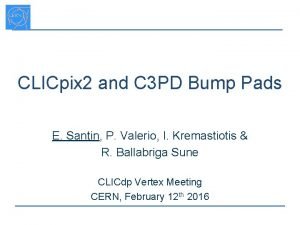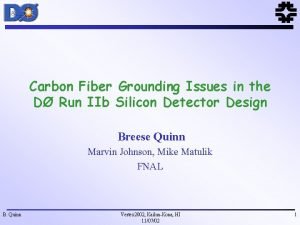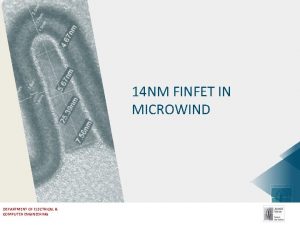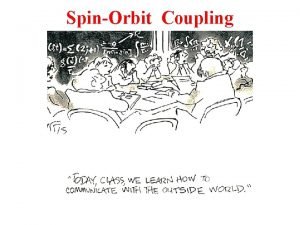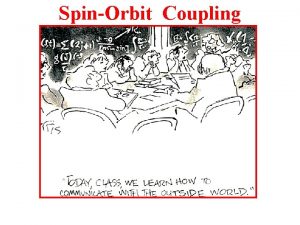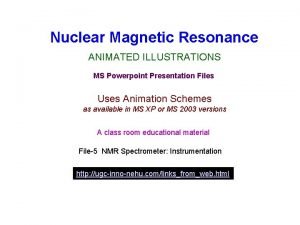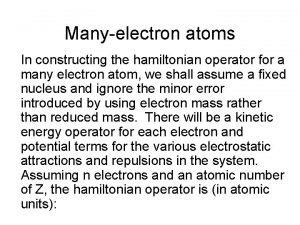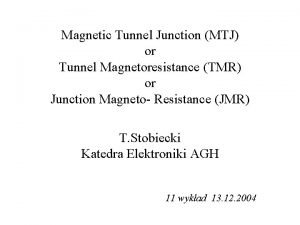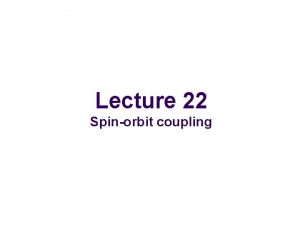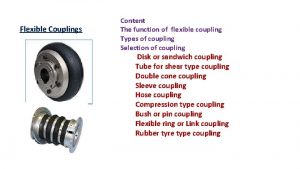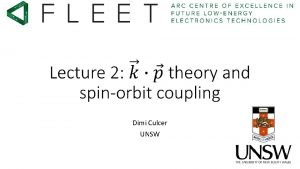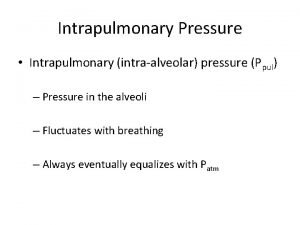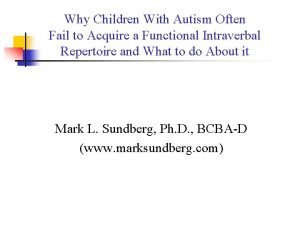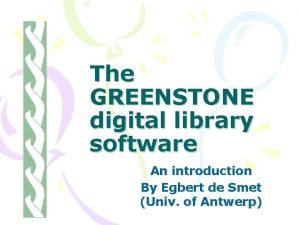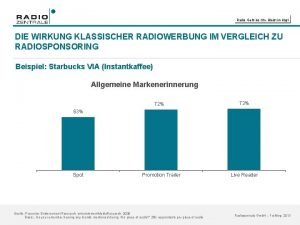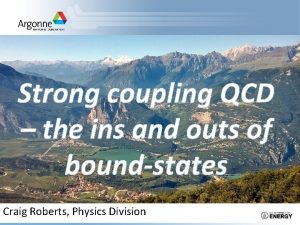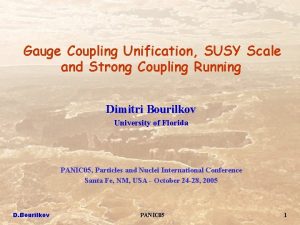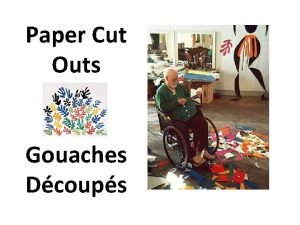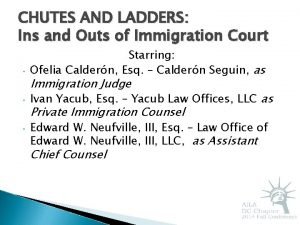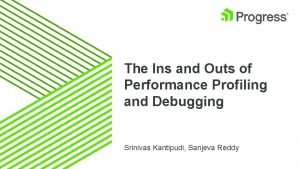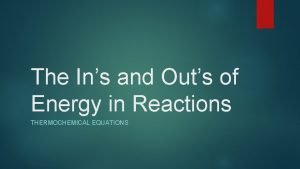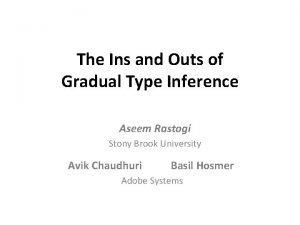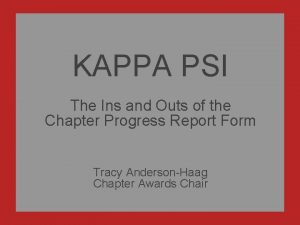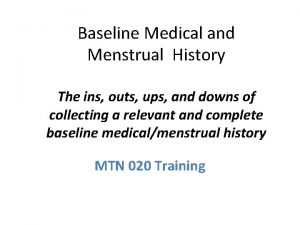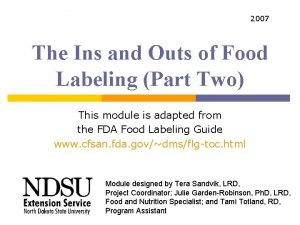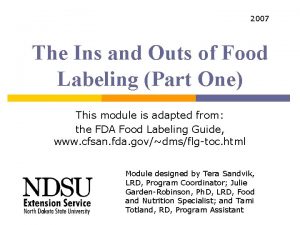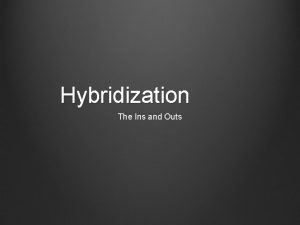Strong coupling QCD the ins and outs of













































![ar. Xiv: 1301. 0324 [nucl-th], ar. Xiv: 1306. 2645 [nucl-th], ar. Xiv: 1311. 1390 ar. Xiv: 1301. 0324 [nucl-th], ar. Xiv: 1306. 2645 [nucl-th], ar. Xiv: 1311. 1390](https://slidetodoc.com/presentation_image_h2/01c5c8e57f2a2eb8d16ed55dd4f950c2/image-46.jpg)





















![I. C. Cloët, C. D. Roberts, et al. ar. Xiv: 0812. 0416 [nucl-th], Few I. C. Cloët, C. D. Roberts, et al. ar. Xiv: 0812. 0416 [nucl-th], Few](https://slidetodoc.com/presentation_image_h2/01c5c8e57f2a2eb8d16ed55dd4f950c2/image-68.jpg)
![I. C. Cloët, C. D. Roberts, et al. ar. Xiv: 0812. 0416 [nucl-th], Few I. C. Cloët, C. D. Roberts, et al. ar. Xiv: 0812. 0416 [nucl-th], Few](https://slidetodoc.com/presentation_image_h2/01c5c8e57f2a2eb8d16ed55dd4f950c2/image-69.jpg)
![I. C. Cloët, C. D. Roberts, et al. ar. Xiv: 0812. 0416 [nucl-th], Few I. C. Cloët, C. D. Roberts, et al. ar. Xiv: 0812. 0416 [nucl-th], Few](https://slidetodoc.com/presentation_image_h2/01c5c8e57f2a2eb8d16ed55dd4f950c2/image-70.jpg)


























- Slides: 96

Strong coupling QCD – the ins and outs of bound-states Craig Roberts, Physics Division

Students, Postdocs, Asst. Profs. 1. Rocio BERMUDEZ (U Michoácan); 2. Shi CHAO (Nanjing U) ; 3. Ming-hui DING (PKU); 4. Fei GAO (PKU) ; 5. S. HERNÁNDEZ (U Michoácan); 6. Cédric MEZRAG (CEA, Saclay) ; 7. Trang NGUYEN (KSU); 8. Khépani RAYA (U Michoácan); 9. Hannes ROBERTS (ANL, FZJ, UBerkeley); 10. Chien-Yeah SENG (UM-Amherst) ; 11. Kun-lun WANG (PKU); 12. Shu-sheng XU (Nanjing U) ; 13. Chen CHEN (USTC); 14. J. Javier COBOS-MARTINEZ (U. Sonora); 15. Mario PITSCHMANN (Vienna); 16. Si-xue QIN (U. Frankfurt am Main, PKU); 17. Jorge SEGOVIA (ANL); 18. David WILSON (ODU); Craig Roberts: Strong-coupling QCD and the ins and outs of bound-states 19. Lei Chang (U. Adelaide) ; 20. Ian Cloet (ANL) ; 21. Bruno El-Bennich (São Paulo); 22. Adnan BASHIR (U Michoácan); 23. Stan BRODSKY (SLAC); 24. Gastão KREIN (São Paulo) ; 25. Roy HOLT (ANL); 26. Yu-xin LIU (PKU); 27. Hervé Moutarde (CEA, Saclay) ; 28. Michael RAMSEY-MUSOLF (UM-Amherst) ; 29. Alfredo RAYA (U Michoácan); 30. Jose Rodriguez Qintero (U. Huelva) ; 31. Sebastian SCHMIDT (IAS-FZJ & JARA); 32. Robert SHROCK (Stony Brook); 33. Peter TANDY (KSU); 34. Tony THOMAS (U. Adelaide) ; 35. Shaolong WAN (USTC) ; 36. Hong-Shi ZONG U) STRONG INTERACTIONS IN THE 574. (Nanjing WE-Heraeus-Seminar: LHC ERA. 79 pp 2

Craig Roberts: Strong-coupling QCD and the ins and outs of bound-states 574. WE-Heraeus-Seminar: STRONG INTERACTIONS IN THE LHC ERA. 79 pp 3

Craig Roberts: Strong-coupling QCD and the ins and outs of bound-states 574. WE-Heraeus-Seminar: STRONG INTERACTIONS IN THE LHC ERA. 79 pp 4

Craig Roberts: Strong-coupling QCD and the ins and outs of bound-states 574. WE-Heraeus-Seminar: STRONG INTERACTIONS IN THE LHC ERA. 79 pp 5

Craig Roberts: Strong-coupling QCD and the ins and outs of bound-states 574. WE-Heraeus-Seminar: STRONG INTERACTIONS IN THE LHC ERA. 79 pp 6

Craig Roberts: Strong-coupling QCD and the ins and outs of bound-states 574. WE-Heraeus-Seminar: STRONG INTERACTIONS IN THE LHC ERA. 79 pp 7

Key Questions for the Future Ø What is confinement? Ø Where is the mass of the nucleon? Ø Where is the nucleon's magnetic moment? Ø What is the nucleon? Ø What is a hadron? Ø… Craig Roberts: Strong-coupling QCD and the ins and outs of bound-states 574. WE-Heraeus-Seminar: STRONG INTERACTIONS IN THE LHC ERA. 79 pp 8

Key Questions for the Future Ø What is confinement? Ø Where is the mass of the nucleon? Ø Where is the nucleon's magnetic moment? Ø What is the nucleon? Ø What is a hadron? Ø… Craig Roberts: Strong-coupling QCD and the ins and outs of bound-states 574. WE-Heraeus-Seminar: STRONG INTERACTIONS IN THE LHC ERA. 79 pp 9

Craig Roberts: Strong-coupling QCD and the ins and outs of bound-states 574. WE-Heraeus-Seminar: STRONG INTERACTIONS IN THE LHC ERA. 79 pp 10

Thomas Jefferson National Accelerator Facility (JLab) e. g. S. J. Brodsky and G. R. Farrar, Phys. Rev. Lett. 31, 1153 (1973) Ø One of the primary reasons for building CEBAF/JLab Prediction: at energy-scales greater than some a priori unknown minimum value, Λ, cross-sections and form factors will behave as Parton model scaling QCD scaling violations power = ( number valence-quarks – 1 + Δλ ) Δλ=0, 1, depending on whether helicity is conserved or flipped … prediction of 1/k 2 vector-boson exchange logarithm = distinctive feature & concrete prediction of QCD Ø Initially imagined that Λ = 1 Ge. V! Ø So, JLab was initially built to reach 4 Ge. V. Craig Roberts: Strong-coupling QCD and the ins and outs of bound-states 574. WE-Heraeus-Seminar: STRONG INTERACTIONS IN THE LHC ERA. 79 pp 11

Thomas Jefferson National Accelerator Facility (JLab) Ø 1994 – 2004 o An enormous number of fascinating experimental results o Including an empirical demonstration that the distribution of charge and magnetisation within the proton are completely different, o Suggesting that quark-quark correlations play a crucial role in nucleon structure MBut no sign of parton model scaling and certainly not of scaling violations Craig Roberts: Strong-coupling QCD and the ins and outs of bound-states Particle physics paradigm 574. WE-Heraeus-Seminar: STRONG INTERACTIONS IN THE LHC ERA. 79 pp 12

Thomas Jefferson National Accelerator Facility (JLab) Ø 2004 … Mission Need Agreed on upgrade of CEBAF (JLab's accelerator) to 12 Ge. V Ø 2014 … 12 Ge. V commissioning beams now being delivered to the experimental halls Ø Final cost of upgrade is approximately $370 -Million Ø Physics of JLab at 12 Ge. V ar. Xiv: 1208. 1244 [hep-ex] Craig Roberts: Strong-coupling QCD and the ins and outs of bound-states 574. WE-Heraeus-Seminar: STRONG INTERACTIONS IN THE LHC ERA. 79 pp 13

Critical Theory Needs for JLab 12 Ø Experiment – Goal: accurate measurement of pion form factor to 6 Ge. V 2; and it can produce a 10% measurement at 9 Ge. V 2 Ø Experiment – Goal: Accurate measurement of nucleon elastic and transition form factors to 15 Ge. V 2 Ø Experiment – Goal: Hadron tomography in momentum and configuration space Ø Critical need for success of Laboratory’s programme – Insightful computational framework • Capable of computing hadron wave functions • Capable of predicting and unifying meson & nucleon elastic and transition form factors on 0<Q 2<15 Ge. V 2 • Possessing direct connection to QCD, so that connection with established predictions of (perturbative) QCD can be established Craig Roberts: Strong-coupling QCD and the ins and outs of bound-states 574. WE-Heraeus-Seminar: STRONG INTERACTIONS IN THE LHC ERA. 79 pp 14

Contemporary Theory Ø Dyson-Schwinger equations – Insightful computational framework – Established connection with predictions of (perturbative) QCD – Capable of predicting and unifying meson & nucleon elastic and transition form factors on 0<Q 2<20 Ge. V 2 … and beyond – Capable of predicting pointwise behaviour of hadronic parton distribution functions/amplitudes … valence-quark domain is understood Craig Roberts: Strong-coupling QCD and the ins and outs of bound-states 574. WE-Heraeus-Seminar: STRONG INTERACTIONS IN THE LHC ERA. 79 pp 15

Significant Progress on All Fronts Ø Novel understanding of gluon and quark confinement and its consequences is emerging from quantum field theory Ø Arriving at a clear picture of how hadron masses emerge dynamically in a universe with light quarks Dynamical Chiral Symmetry Breaking (DCSB) Ø Realistic computations of ground-state hadron wave functions with a direct connection to QCD are now available Ø Quark-quark correlations are crucial in hadron structure and accumulating empirical evidence in support of this prediction Craig Roberts: Strong-coupling QCD and the ins and outs of bound-states 574. WE-Heraeus-Seminar: STRONG INTERACTIONS IN THE LHC ERA. 79 pp 16

Craig Roberts: Strong-coupling QCD and the ins and outs of bound-states 574. WE-Heraeus-Seminar: STRONG INTERACTIONS IN THE LHC ERA. 79 pp 17

Light quarks & Confinement Ø Folklore … JLab Hall-D Conceptual Design Report(5) “The color field lines between a quark and an anti-quark form flux tubes. A unit area placed midway between the quarks and perpendicular to the line connecting them intercepts a constant number of field lines, independent of the distance between the quarks. This leads to a constant force between the quarks – and a large force at that, equal to about 16 metric tons. ” Craig Roberts: Strong-coupling QCD and the ins and outs of bound-states 574. WE-Heraeus-Seminar: STRONG INTERACTIONS IN THE LHC ERA. 79 pp 18

Light quarks & Confinement ØProblem: Pions … They’re unnaturally light 16 tonnes of force makes a lot of them. Craig Roberts: Strong-coupling QCD and the ins and outs of bound-states 574. WE-Heraeus-Seminar: STRONG INTERACTIONS IN THE LHC ERA. 79 pp 19

Light quarks & Confinement ØProblem: 16 tonnes of force makes a lot of pions. Craig Roberts: Strong-coupling QCD and the ins and outs of bound-states 574. WE-Heraeus-Seminar: STRONG INTERACTIONS IN THE LHC ERA. 79 pp 20

G. Bali et al. , Po. S LAT 2005 (2006) 308 Light quarks & Confinement Ø In the presence of light quarks, pair creation seems to occur non-localized and instantaneously Craig Roberts: Strong-coupling QCD and the ins and outs of bound-states 574. WE-Heraeus-Seminar: STRONG INTERACTIONS IN THE LHC ERA. 79 pp 21

G. Bali et al. , Po. S LAT 2005 (2006) 308 Light quarks & Confinement Ø In the presence of light quarks, pair creation seems to occur non-localized and instantaneously Ø No flux tube in a theory with lightquarks. Ø Flux-tube is not the correct paradigm for confinement in hadron physics Craig Roberts: Strong-coupling QCD and the ins and outs of bound-states 574. WE-Heraeus-Seminar: STRONG INTERACTIONS IN THE LHC ERA. 79 pp 22

Craig Roberts: Strong-coupling QCD and the ins and outs of bound-states 574. WE-Heraeus-Seminar: STRONG INTERACTIONS IN THE LHC ERA. 79 pp 23

Craig Roberts: Strong-coupling QCD and the ins and outs of bound-states 574. WE-Heraeus-Seminar: STRONG INTERACTIONS IN THE LHC 24 ERA. 79 pp

Dynamical Chiral Symmetry Breaking Ø DCSB is a fact in QCD – Dynamical, not spontaneous • Add nothing to QCD , No Higgs field, nothing! Effect achieved purely through quark+gluon dynamics. – It’s the most important mass generating mechanism for visible matter in the Universe. • Responsible for ≈98% of the proton’s mass. • Higgs mechanism is (almost) irrelevant to light-quarks. Craig Roberts: Strong-coupling QCD and the ins and outs of bound-states 574. WE-Heraeus-Seminar: STRONG INTERACTIONS IN THE LHC 25 ERA. 79 pp

Ø Not just quarks … Ø Gluons also have a gap equation … Ø Gluons are cannibals – a particle species whose members become massive by eating each other! In QCD: Gluons also become massive! Gluon mass-squared function Present level of uncertainty using phenomenology and theory ∼ 30% Power-law suppressed in ultraviolet, so invisible in perturbation theory Craig Roberts: Strong-coupling QCD and the ins and outs of bound-states 574. WE-Heraeus-Seminar: STRONG INTERACTIONS IN THE LHC ERA. 79 pp 26

Massive Gauge Bosons! Ø Gauge boson cannibalism … a new physics frontier … within the Standard Model Ø Asymptotic freedom means … ultraviolet behaviour of QCD is controllable Ø Dynamically generated masses for gluons and quarks means that QCD dynamically generates its own infrared cutoffs – Gluons and quarks with wavelength λ > 2/mass ≈ 1 fm decouple from the dynamics … Confinement? ! Ø How does that affect observables? – It will have an impact in any continuum study – Must play a role in gluon saturation. . . In fact, perhaps it’s a harbinger of gluon saturation? Craig Roberts: Strong-coupling QCD and the ins and outs of bound-states 574. WE-Heraeus-Seminar: STRONG INTERACTIONS IN THE LHC ERA. 79 pp 27

Craig Roberts: Strong-coupling QCD and the ins and outs of bound-states 574. WE-Heraeus-Seminar: STRONG INTERACTIONS IN THE LHC ERA. 79 pp 28

Craig Roberts: Strong-coupling QCD and the ins and outs of bound-states 574. WE-Heraeus-Seminar: STRONG INTERACTIONS IN THE LHC ERA. 79 pp Ø QFT Paradigm: Confinement – Confinement is expressed through a dramatic change in the analytic structure of propagators for coloured states – It can almost be read from a plot of the dressedpropagator for a coloured state Confined particle Normal particle Propagation described by rapidly damped wave & hence state cannot exist in observable spectrum σ ≈ 1/Im(m) ≈ 1/2ΛQCD ≈ ½fm Real-axis mass-pole splits, moving into pair(s) of complex conjugate singularities, (or qualitatively analogous structures chracterised by a dynamically generated mass-scale) 29

Quark Fragmentation Ø A quark begins to propagate in spacetime Ø But after each “step” of length σ, on average, an interaction occurs, so that the quark loses its identity, sharing it with other partons Ø Finally, a cloud of partons is produced, which coalesces into colour-singlet final states σ Craig Roberts: Strong-coupling QCD and the ins and outs of bound-states An EIC will enable “ 3 D” measurements relating to fragmentation and insight into real-world meson confinement meson Baryon meson Real-world confinement is a dynamical phenomenon, surrounded by mystery! 574. WE-Heraeus-Seminar: STRONG INTERACTIONS IN THE LHC ERA. 79 pp 30

Craig Roberts: Strong-coupling QCD and the ins and outs of bound-states 574. WE-Heraeus-Seminar: STRONG INTERACTIONS IN THE LHC ERA. 79 pp 31

Maris, Roberts and Tandy nucl-th/9707003, Phys. Lett. B 420 (1998) 267 -273 Pion’s Goldberger -Treiman relation Ø Pion’s Bethe-Salpeter amplitude Solution of the Bethe-Salpeter equation Ø Dressed-quark propagator Ø Axial-vector Ward-Takahashi identity entails B(k 2) Owing to DCSB & Exact in Chiral QCD Miracle: two body problem solved, almost completely, once solution of one body problem is known Craig Roberts: Strong-coupling QCD and the ins and outs of bound-states 574. WE-Heraeus-Seminar: STRONG INTERACTIONS IN THE LHC ERA. 79 pp 32

2 2 fπ Eπ(p ) = B(p ) Craig Roberts: Strong-coupling QCD and the ins and outs of bound-states 574. WE-Heraeus-Seminar: STRONG INTERACTIONS IN THE LHC ERA. 79 pp 33

2 2 fπ Eπ(p ) = B(p ) Ø The quark level Goldberger-Treiman relation shows that DCSB has a very deep and far reaching impact on physics within the strong interaction sector of the Standard Model; viz. , Goldstone's theorem is fundamentally an expression of equivalence between the one-body problem and the two-body problem in the pseudoscalar channel. Ø This emphasises that Goldstone's theorem has a pointwise expression in QCD Ø Hence, pion properties are an almost direct measure of the dressed-quark mass function. Ø Thus, enigmatically, the properties of the massless pion are the cleanest expression of the mechanism that is responsible for almost all the visible mass in the universe. Craig Roberts: Strong-coupling QCD and the ins and outs of bound-states 574. WE-Heraeus-Seminar: STRONG INTERACTIONS IN THE LHC ERA. 79 pp 34

Craig Roberts: Strong-coupling QCD and the ins and outs of bound-states 574. WE-Heraeus-Seminar: STRONG INTERACTIONS IN THE LHC ERA. 79 pp 35

Universal Conventions Ø Wikipedia: (http: //en. wikipedia. org/wiki/QCD_vacuum) “The QCD vacuum is the vacuum state of quantum chromodynamics (QCD). It is an example of a nonperturbative vacuum state, characterized by many nonvanishing condensates such as the gluon condensate or the quark condensate. These condensates characterize the normal phase or the confined phase of quark matter. ” Craig Roberts: Strong-coupling QCD and the ins and outs of bound-states 574. WE-Heraeus-Seminar: STRONG INTERACTIONS IN THE LHC ERA. 79 pp 36

“Orthodox Vacuum” Ø Vacuum = “frothing sea” u Ø Hadrons = bubbles in that “sea”, d u containing nothing but quarks & gluons interacting perturbatively, unless they’re near the bubble’s boundary, whereat they feel they’re trapped! ud u u u d Craig Roberts: Strong-coupling QCD and the ins and outs of bound-states 574. WE-Heraeus-Seminar: STRONG INTERACTIONS IN THE LHC ERA. 79 pp 37

Historically, DCSB has come to be associated with the presumed existence of spacetimeindependent condensates that permeate the Universe. However, just like gluons and quarks, and for the same reasons: Condensates are confined within hadrons. There are no in-vacuum condensates. Craig Roberts: Strong-coupling QCD and the ins and outs of bound-states 574. WE-Heraeus-Seminar: STRONG INTERACTIONS IN THE LHC ERA. 79 pp 38

Craig Roberts: Strong-coupling QCD and the ins and outs of bound-states 574. WE-Heraeus-Seminar: STRONG INTERACTIONS IN 39

“Orthodox Vacuum” Ø Vacuum = “frothing sea” u Ø Hadrons = bubbles in that “sea”, d u containing nothing but quarks & gluons interacting perturbatively, unless they’re near the bubble’s boundary, whereat they feel they’re trapped! ud u u u d Craig Roberts: Strong-coupling QCD and the ins and outs of bound-states 574. WE-Heraeus-Seminar: STRONG INTERACTIONS IN THE LHC ERA. 79 pp 40

New Paradigm Ø Vacuum = perturbative hadronic fluctuations but no nonperturbative condensates Ø Hadrons = complex, interacting systems within which perturbative behaviour is restricted to just 2% of the interior u d u u u d Craig Roberts: Strong-coupling QCD and the ins and outs of bound-states 574. WE-Heraeus-Seminar: STRONG INTERACTIONS IN THE LHC ERA. 79 pp 41

Paradigm shift: In-Hadron Condensates “Void that is truly empty solves dark energy puzzle” “The biggest embarrassment in Rachel Courtland, New Scientist 4 th Sept. 2010 theoretical physics. ” “EMPTY space may really be empty. Though quantum theory suggests that a vacuum should be fizzing with particle activity, it turns out that this paradoxical picture of nothingness may not be needed. A calmer view of the vacuum would also help resolve a nagging inconsistency with dark energy, the elusive force thought to be speeding up the expansion of the universe. ” Cosmological Constant: üPutting QCD condensates back into hadrons reduces the mismatch between experiment and theory by a factor of 1046 üPossibly by far more, if technicolour-like theories are the correct paradigm for extending the Standard Model Craig Roberts: Strong-coupling QCD and the ins and outs of bound-states 574. WE-Heraeus-Seminar: STRONG INTERACTIONS IN THE LHC ERA. 79 pp 42

Craig Roberts: Strong-coupling QCD and the ins and outs of bound-states 574. WE-Heraeus-Seminar: STRONG INTERACTIONS IN THE LHC ERA. 79 pp 43

Imaging dynamical chiral symmetry breaking: pion wave function on the light front, Lei Chang, et al. , ar. Xiv: 1301. 0324 [nucl-th], Phys. Rev. Lett. 110 (2013) 132001 (2013) [5 pages]. Pion’s valence-quark Distribution Amplitude Ø Last two years, methods have been developed that enable direct computation of meson light-front wave functions Ø φπ(x) = twist-two parton distribution amplitude = projection of the pion’s Poincaré-covariant wave-function onto the light-front Ø Results have been obtained with rainbow-ladder DSE kernel, simplest symmetry preserving form; and the best DCSB-improved kernel that is currently available. xα (1 -x)α, with α≈0. 5 Craig Roberts: Strong-coupling QCD and the ins and outs of bound-states 574. WE-Heraeus-Seminar: STRONG INTERACTIONS IN THE LHC ERA. 79 pp 44

Imaging dynamical chiral symmetry breaking: pion wave function on the light front, Lei Chang, et al. , ar. Xiv: 1301. 0324 [nucl-th], Phys. Rev. Lett. 110 (2013) 132001 (2013) [5 pages]. Pion’s valence-quark Distribution Amplitude Ø Continuum-QCD prediction: marked broadening of φπ(x), which owes to DCSB Asymptotic DB RL Craig Roberts: Strong-coupling QCD and the ins and outs of bound-states 574. WE-Heraeus-Seminar: STRONG INTERACTIONS IN THE LHC ERA. 79 pp 45
![ar Xiv 1301 0324 nuclth ar Xiv 1306 2645 nuclth ar Xiv 1311 1390 ar. Xiv: 1301. 0324 [nucl-th], ar. Xiv: 1306. 2645 [nucl-th], ar. Xiv: 1311. 1390](https://slidetodoc.com/presentation_image_h2/01c5c8e57f2a2eb8d16ed55dd4f950c2/image-46.jpg)
ar. Xiv: 1301. 0324 [nucl-th], ar. Xiv: 1306. 2645 [nucl-th], ar. Xiv: 1311. 1390 [nucl-th], ar. Xiv: 1405. 0289 [nucl-th], ar. Xiv: 1406: 3353 [nucl-th] Features of Ground-state PDAs Ø A diverse array of studies since Caraguatatuba (2012) have shown that ground-state meson PDAs are broad, concave functions Concave function: no line segment lies above any point on the graph Ø Camel-humped distributions – popular with some for many years – are physically unreasonable because they correspond to boundstate amplitudes that disfavour equal momentum partitioning between valence-quark degrees of freedom Craig Roberts: Strong-coupling QCD and the ins and outs of bound-states 574. WE-Heraeus-Seminar: STRONG INTERACTIONS IN THE LHC ERA. 79 pp 46

Pion electromagnetic form factor Ø 2013: existing data and theory – no hint of a trend toward the socalled asymptotic p. QCD prediction? Ø Jlab 12 will allow an extension of the Fπ measurement up to a value of Q 2 of about 6 (Ge. V/c)2 & 10% measurement at 9 Ge. V 2 Craig Roberts: Strong-coupling QCD and the ins and outs of bound-states E 12 -06 -101 and E 12 -07 -105 Projected JLab reach Result imagined by many to be QCD prediction Evaluated with φπ = 6 x(1 -x) 574. WE-Heraeus-Seminar: STRONG INTERACTIONS IN THE LHC ERA. 79 pp 47

Pion electromagnetic form factor Ø Understanding – Part 1 – Compare data with the real QCD prediction; i. e. the result calculated using the broad pion PDA predicted by modern analyses of continuum QCD Agreement within 15% maximum Real QCD prediction – obtained with realistic, computed PDA Ø Understanding – Part 2 – Algorithm used to compute the PDA can also be employed to compute Fπ(Q 2) directly, to arbitrarily large Q 2 Ø Predictions: Ø JLab will see maximum Ø Experiments to 8 Ge. V 2 will see parton model scaling and QCD Pion electromagnetic form factor at spacelike momenta scaling violations for the first L. Chang, I. C. Cloët, C. D. Roberts, S. M. Schmidt and P. C. Tandy, time in a hadron form factor ar. Xiv: 1307. 0026 [nucl-th], Phys. Rev. Lett. 111, 141802 (2013) Craig Roberts: Strong-coupling QCD and the ins and outs of bound-states 574. WE-Heraeus-Seminar: STRONG INTERACTIONS IN THE LHC ERA. 79 pp 48

Explanation and Prediction of Observables using Continuum Strong QCD, Ian C. Cloët and Craig D. Roberts, ar. Xiv: 1310. 2651 [nucl-th], Prog. Part. Nucl. Phys. 77 (2014) pp. 1– 69 [on-line] Ø PDA is a wave function not directly observable but PDF is. Ø φπasy(x) can only be a good approximation to the pion's PDA when it is accurate to write When is asymptotic PDA valid? Basic features of the pion valence-quark distribution function, L. Chang et al. , Phys. Lett. B 737 (2014) pp. 23– 29 Q 2=27 Ge. V 2 This is not δ(x)! uvπ (x) ≈ δ(x) for the pion's valencequark distribution function. Ø This is far from valid at currently accessible scales Craig Roberts: Strong-coupling QCD and the ins and outs of bound-states 574. WE-Heraeus-Seminar: STRONG INTERACTIONS IN THE LHC ERA. 79 pp 49

Explanation and Prediction of Observables using Continuum Strong QCD, Ian C. Cloët and Craig D. Roberts, ar. Xiv: 1310. 2651 [nucl-th], Prog. Part. Nucl. Phys. 77 (2014) pp. 1– 69 [on-line] Ø When is asymptopia reached? Ø If uvπ(x) ≈ δ(x), then <x> = ∫ 01 dx x uvπ(x) = 0; i. e. , the light-front momentum fraction carried by valence-quarks is ZERO Asymptopia is reached when <x> is “small” When is asymptotic PDA valid? JLab 2 Ge. V LHC: 16 Te. V Evolution in QCD is LOGARITHMIC Ø As usual, the computed valencequark distribution produces (πØ=NLO evolution of PDF, computation of <x>. u+dbar) Ø Even at LHC energies, light-front fraction of the π momentum: 2<x>2 Ge. V = 44% <x>dressed valence-quarks = 21% Ø When is <x> small? <x>glue = 54%, <x>sea-quarks = 25% Craig Roberts: Strong-coupling QCD and the ins and outs of bound-states 574. WE-Heraeus-Seminar: STRONG INTERACTIONS IN THE LHC ERA. 79 pp 50

Explanation and Prediction of Observables using Continuum Strong QCD, Ian C. Cloët and Craig D. Roberts, ar. Xiv: 1310. 2651 [nucl-th], Prog. Part. Nucl. Phys. 77 (2014) pp. 1– 69 [on-line] At the “Planck scale” Evolution in QCD is LOGARITHMIC Ø In the truly asymptotic domain, way beyond LHC energy scales, gluons and seaquarks share the momentum of a hadron, each with roughly 50% of the momentum Craig Roberts: Strong-coupling QCD and the ins and outs of bound-states EIC Reach 574. WE-Heraeus-Seminar: STRONG INTERACTIONS IN THE LHC ERA. 79 pp 51

Craig Roberts: Strong-coupling QCD and the ins and outs of bound-states 574. WE-Heraeus-Seminar: STRONG INTERACTIONS IN THE LHC ERA. 79 pp 52

GPDs & TMDs Ø PDFs … only describe hadron light-front structure incompletely because inclusive deep inelastic scattering (DIS) measurements do not yield information about the distribution of partons in the plane perpendicular to the bound-state's total momentum; i. e. , within the light front. Ø Generalised Parton Distributions (GPDs) – Spatial tomography of hadrons – Measured in DVCS Ø Transverse Momentum-dependent Distributions (TMDs) – Momentum tomography of hadrons – Measured in SIDIS Ø A new generation of experiments – more than ½ beam time at JLab – aims to provide the empirical information necessary to develop a phenomenology of nucleon Wigner distributions. Craig Roberts: Strong-coupling QCD and the ins and outs of bound-states 574. WE-Heraeus-Seminar: STRONG INTERACTIONS IN THE LHC ERA. 79 pp 53

GPDs & TMDs Ø Principal problem with phenomenology – If one wishes to use measured GPDs as a means by which to validate our basic perception of strong interactions in the Standard Model, then data fitting is inadequate. Ø Instead, it is necessary to compute GPDs using a framework that possesses a direct connection with QCD. Ø This observation is highlighted by experience drawn from the simpler case of the pion's valence-quark PDF (L. Chang et al. , Phys. Lett. B 737 (2014) pp. 23– 29) – – Phenomenology contradicted QCD predictions Many claimed QCD was challenged Until nonperturbative continuum-QCD predictions appeared … Data reanalysed … now the PDF is seen as a success for QCD Craig Roberts: Strong-coupling QCD and the ins and outs of bound-states 574. WE-Heraeus-Seminar: STRONG INTERACTIONS IN THE LHC ERA. 79 pp 54

GPDs – unify & extend Ø GPDs unify PDFs and elastic form factors, and extend both into a new domain Craig Roberts: Strong-coupling QCD and the ins and outs of bound-states 574. WE-Heraeus-Seminar: STRONG INTERACTIONS IN THE LHC ERA. 79 pp 55

Pion valence -quark GPD Ø Rainbow-ladder (RL) truncation – δnx. P(ℓ): = δ(n⋅ℓ - x n⋅P), ℓ+R =ηbar ℓ++η ℓP, ℓ-R= η ℓ- + ηbarℓP, ℓ± = ℓ ± Δ/2, ℓP = ℓ - P. Ø Triangle corresponds to the textbook handbag diagram – Certainly guarantees connection between H(x, ξ, t) and Fπ(t), at same order of truncation Ø However, handbag diagram is not complete set of diagrams in RL truncation of valence-quark PDF and hence it’s not adequate for H(x, ξ, t) Basic features of the pion valence-quark distribution function, L. Chang et al. , Phys. Lett. B 737 (2014) pp. 23– 29 Ø Correction for PDF is known … Extension of Hπ(x, ξ, t) to all ξ ≠ 0 is not yet known but ξ =0 can be handled Craig Roberts: Strong-coupling QCD and the ins and outs of bound-states 574. WE-Heraeus-Seminar: STRONG INTERACTIONS IN THE LHC ERA. 79 pp 56

Sketching the pion's valence-quark generalised parton distribution, C. Mezrag, L. Chang, H. Moutarde, C. D. Roberts, J. Rodriguez-Quintero, F. Sabatié, S. M. Schmidt in progress Ø Completely general expression: uvπ(x) Pion valence -quark GPD computed directly from triangle diagram Ø Use fact that H(x, ξ, t) can be written as a Radon transform, owing to its general properties: ξ =0 Ø Then … compute handbag diagram plus first-guess correction … inspect the result … read off the surviving Radon amplitude, F(α, β, t) … obtain Ø Hπ(x, ξ, t) is then completely determined … not just a limited number of moments but the entire function Craig Roberts: Strong-coupling QCD and the ins and outs of bound-states 574. WE-Heraeus-Seminar: STRONG INTERACTIONS IN THE LHC ERA. 79 pp 57

Sketching the pion's valence-quark generalised parton distribution, C. Mezrag, L. Chang, H. Moutarde, C. D. Roberts, J. Rodriguez-Quintero, F. Sabatié, S. M. Schmidt in progress Ø GPD in impact parameter space: Pion valence -quark GPD qπ(x Ø A true quantum mechanics density … … describes the probability of finding a parton within the light-front at a transverse position |bperp| from the hadron's centre of transverse momentum (Co. TM) Ø Computed result … … not a guess Craig Roberts: Strong-coupling QCD and the ins and outs of bound-states 574. WE-Heraeus-Seminar: STRONG INTERACTIONS IN THE LHC ERA. 79 pp 58

Sketching the pion's valence-quark generalised parton distribution, C. Mezrag, L. Chang, H. Moutarde, C. D. Roberts, J. Rodriguez-Quintero, F. Sabatié, S. M. Schmidt in progress Ø GPD in impact parameter space: Pion valence -quark GPD qπ(x Ø Peaked at (x. Vm, |bperp|=0) … peak becomes sharper as resolving scale, ζ, increases Ø Broad at |bperp| =0, becomes even broader as ζ increases Ø Narrowing as x → 1 … increasing ζ: x. Vm → 0; GPD becomes even narrower … there can’t be many partons carrying x≃1; i. e. , all the hadron’s light-front momentum Craig Roberts: Strong-coupling QCD and the ins and outs of bound-states 574. WE-Heraeus-Seminar: STRONG INTERACTIONS IN THE LHC ERA. 79 pp 59

Craig Roberts: Strong-coupling QCD and the ins and outs of bound-states 574. WE-Heraeus-Seminar: STRONG INTERACTIONS IN THE LHC ERA. 79 pp 60

Ø Poincaré covariant Faddeev equation sums all possible exchanges and interactions that can take place between three dressed-quarks Ø Confinement and DCSB are readily expressed Ø Prediction: strong diquark correlations exist within baryons as a dynamical consequence of DCSB in QCD – The same mechanism that produces an almost massless pion from two dynamically-massive quarks forces a strong correlation between two quarks in colour-antitriplet channels within a baryon Ø Diquark correlations are not pointlike – Typically, r 0+ ~ rπ & r 1+ ~ rρ (actually 10% larger) – They have soft form factors Craig Roberts: Strong-coupling QCD and the ins and outs of bound-states 574. WE-Heraeus-Seminar: STRONG INTERACTIONS IN THE LHC ERA. 79 pp 61

ØNPoincaré ucl covariant Faddeev equation sums all possible eon and interactions that can take place between three preexchanges dic wav dressed-quarks tio e f n Ø Confinement and DCSB readily expressed of n uncare tiocorrelations exist within baryons as Ø Prediction: strong ucdiquark n l e canin QCD a dynamical consequence on of DCSB pro be per calc ties ula is p ted Ø Diquark correlations are not pointlike oss … – Typically, r 0+ ~ rπ & r 1+ ~ rρ (actually 10% larger) ible – The same mechanism that produces an almost massless pion from two dynamically-massive quarks forces a strong correlation between two quarks in colour-antitriplet channels within a baryon – They have soft form factors Craig Roberts: Strong-coupling QCD and the ins and outs of bound-states 574. WE-Heraeus-Seminar: STRONG INTERACTIONS IN THE LHC ERA. 79 pp 62

I. C. Cloët, C. D. Roberts, A. W. Thomas: Revealing dressed-quarks via the proton's charge distribution, ar. Xiv: 1304. 0855 [nucl-th], Phys. Rev. Lett. 111 (2013) 101803 Visible Impacts of DCSB Craig Roberts: Strong-coupling QCD and the ins and outs of bound-states Ø Apparently small changes in M(p) within the domain 1<p(Ge. V)<3 have striking effect on the proton’s electric form factor Ø The possible existence and location of the zero is determined by behaviour of Q 2 F 2 p(Q 2), proton’s Pauli form factor Ø Like the pion’s PDA, Q 2 F 2 p(Q 2) measures the rate at which dressedquarks become parton-like: ü F 2 p=0 for bare quark-partons ü Therefore, GEp can’t be zero on the 574. WE-Heraeus-Seminar: STRONG INTERACTIONS IN THE LHC bare-parton ERA. 79 pp domain 63

I. C. Cloët, C. D. Roberts, A. W. Thomas: Revealing dressed-quarks via the proton's charge distribution, ar. Xiv: 1304. 0855 [nucl-th], Phys. Rev. Lett. 111 (2013) 101803 Visible Impacts of DCSB Ø Follows that the ü possible existence ü and location of a zero in the ratio of proton elastic form factors [μp. GEp(Q 2)/GMp(Q 2)] are a direct measure of the nature of the quark-quark interaction in the Standard Model. Craig Roberts: Strong-coupling QCD and the ins and outs of bound-states 574. WE-Heraeus-Seminar: STRONG INTERACTIONS IN THE LHC ERA. 79 pp 64

J. Segovia, I. C. Cloët, C. D. Roberts, S. M. Schmidt: Nucleon and Δ Elastic and Transition Form Factors, ar. Xiv: 1408. 2919 [nucl-th], Few Body Systems (in press) Ø Proton: if one accelerates the rate at which the dressed-quark sheds its cloud of gluons to become a parton, then zero in Gep is pushed to larger Q 2 Ø Opposite for neutron! Ø Explained by presence of diquark correlations Electric Charge Ø These features entail that at x≈ 5 the electric form factor of the neutral neutron will become larger than that of the unit-charge proton! Ø JLab 12 will probe this prediction Leads to Prediction neutron: proton GEn(Q 2) > GEp(Q 2) at Q 2 > 4 Ge. V 2 Craig Roberts: Strong-coupling QCD and the ins and outs of bound-states 574. WE-Heraeus-Seminar: STRONG INTERACTIONS IN THE LHC ERA. 79 pp 65

Craig Roberts: Strong-coupling QCD and the ins and outs of bound-states 574. WE-Heraeus-Seminar: STRONG INTERACTIONS IN THE LHC ERA. 79 pp 66

Nucleon spin structure at very high-x Craig D. Roberts, Roy J. Holt and Sebastian M. Schmidt ar. Xiv: 1308. 1236 [nucl-th], Phys. Lett. B 727 (2013) pp. 249– 254 Far valence domain x≃1 Ø Endpoint of the far valence domain: x ≃ 1, is especially significant – All familiar PDFs vanish at x=1; but ratios of any two need not – Under DGLAP evolution, the value of such a ratio is invariant. Ø Thus, e. g. , – limx→ 1 dv(x)/uv(x) is unambiguous, scale invariant, nonperturbative feature of QCD. keen discriminator between frameworks that claim to explain nucleon structure. Ø Furthermore, Bjorken-x=1 corresponds strictly to the situation in which the invariant mass of the hadronic final state is precisely that of the target; viz. , elastic scattering. Structure functions inferred experimentally on x≃1 are determined theoretically by target's elastic form factors. Craig Roberts: Strong-coupling QCD and the ins and outs of bound-states 574. WE-Heraeus-Seminar: STRONG INTERACTIONS IN THE LHC ERA. 79 pp 67
![I C Cloët C D Roberts et al ar Xiv 0812 0416 nuclth Few I. C. Cloët, C. D. Roberts, et al. ar. Xiv: 0812. 0416 [nucl-th], Few](https://slidetodoc.com/presentation_image_h2/01c5c8e57f2a2eb8d16ed55dd4f950c2/image-68.jpg)
I. C. Cloët, C. D. Roberts, et al. ar. Xiv: 0812. 0416 [nucl-th], Few Body Syst. 46 (2009) 1 -36 D. J. Wilson, I. C. Cloët, L. Chang and C. D. Roberts ar. Xiv: 1112. 2212 [nucl-th], Phys. Rev. C 85 (2012) 025205 [21 pages] Neutron Structure Function at high-x Ø Valence-quark distributions at x=1 – Fixed point under DGLAP evolution – Strong discriminator between theories Ø Algebraic formula Measures relative strength of axial-vector/scalar diquarks in proton – P 1 p, s = contribution to the proton's charge arising from diagrams with a scalar diquark component in both the initial and final state – P 1 p, a = kindred axial-vector diquark contribution – P 1 p, m = contribution to the proton's charge arising from diagrams with a different diquark component in the initial and final state. Craig Roberts: Strong-coupling QCD and the ins and outs of bound-states 574. WE-Heraeus-Seminar: STRONG INTERACTIONS IN THE LHC ERA. 79 pp 68
![I C Cloët C D Roberts et al ar Xiv 0812 0416 nuclth Few I. C. Cloët, C. D. Roberts, et al. ar. Xiv: 0812. 0416 [nucl-th], Few](https://slidetodoc.com/presentation_image_h2/01c5c8e57f2a2eb8d16ed55dd4f950c2/image-69.jpg)
I. C. Cloët, C. D. Roberts, et al. ar. Xiv: 0812. 0416 [nucl-th], Few Body Syst. 46 (2009) 1 -36 D. J. Wilson, I. C. Cloët, L. Chang and C. D. Roberts ar. Xiv: 1112. 2212 [nucl-th], Phys. Rev. C 85 (2012) 025205 [21 pages] Neutron Structure Function at high-x x>0. 9 d/u=1/2 SU(6) symmetry Deep inelastic scattering – the Nobel-prize winning quark-discovery experiments Reviews: Ø S. Brodsky et al. NP B 441 (1995) Ø W. Melnitchouk & A. W. Thomas PL B 377 (1996) 11 Ø N. Isgur, PRD 59 (1999) Ø R. J. Holt & C. D. Roberts RMP (2010) Craig Roberts: Strong-coupling QCD and the ins and outs of bound-states d/u=0. 28 DSE: “realistic” p. QCD, uncorrelated Ψ DSE: “contact” d/u=0. 18 0+ qq only, d/u=0 Melnitchouk, Accardi et al. Phys. Rev. D 84 (2011) 117501 Melnitchouk, Arrington et al. Phys. Rev. Lett. 108 (2012) 252001 Distribution of neutron’s momentum amongst quarks on the valence-quark domain 574. WE-Heraeus-Seminar: STRONG INTERACTIONS IN THE LHC 69 ERA. 79 pp
![I C Cloët C D Roberts et al ar Xiv 0812 0416 nuclth Few I. C. Cloët, C. D. Roberts, et al. ar. Xiv: 0812. 0416 [nucl-th], Few](https://slidetodoc.com/presentation_image_h2/01c5c8e57f2a2eb8d16ed55dd4f950c2/image-70.jpg)
I. C. Cloët, C. D. Roberts, et al. ar. Xiv: 0812. 0416 [nucl-th], Few Body Syst. 46 (2009) 1 -36 D. J. Wilson, I. C. Cloët, L. Chang and C. D. Roberts ar. Xiv: 1112. 2212 [nucl-th], Phys. Rev. C 85 (2012) 025205 [21 pages] Neutron Structure Function at high-x NB. d/u|x=1= 0 means there are no valence d-quarks in the proton! x>0. 9 d/u=1/2 SU(6) symmetry Deep inelastic scattering – the Nobel-prize winning quark-discovery experiments d/u=0. 28 DSE: “realistic” p. QCD, uncorrelated Ψ Reviews: Ø S. Brodsky et al. NP B 441 (1995) Ø W. Melnitchouk & A. W. Thomas PL B 377 (1996) 11 Ø N. Isgur, PRD 59 (1999) Ø R. J. Holt & C. D. Roberts RMP (2010) DSE: “contact” d/u=0. 18 0+ qq only, d/u=0 JLab 12 can solve this enigma Craig Roberts: Strong-coupling QCD and the ins and outs of bound-states Melnitchouk, Accardi et al. Phys. Rev. D 84 (2011) 117501 Melnitchouk, Arrington et al. Phys. Rev. Lett. 108 (2012) 252001 Distribution of neutron’s momentum amongst quarks on. WE-Heraeus-Seminar: the valence-quark domain 574. STRONG INTERACTIONS IN THE 70 LHC ERA. 79 pp

Craig Roberts: Strong-coupling QCD and the ins and outs of bound-states 574. WE-Heraeus-Seminar: STRONG INTERACTIONS IN THE LHC 71 ERA. 79 pp

Nucleon spin structure at very high-x Craig D. Roberts, Roy J. Holt and Sebastian M. Schmidt ar. Xiv: 1308. 1236 [nucl-th], Phys. Lett. B 727 (2013) pp. 249– 254 Quark helicity at large Bjorken-x Ø Correlations between dressed-quarks within the proton have an enormous impact on nucleon spin structure Craig Roberts: Strong-coupling QCD and the ins and outs of bound-states 574. WE-Heraeus-Seminar: STRONG INTERACTIONS IN THE LHC ERA. 79 pp 72

Nucleon spin structure at very high-x Craig D. Roberts, Roy J. Holt and Sebastian M. Schmidt ar. Xiv: 1308. 1236 [nucl-th], Phys. Lett. B 727 (2013) pp. 249– 254 Quark helicity at large Bjorken-x Ø Existing data cannot distinguish between modern pictures of nucleon structure Ø Empirical results for nucleon longitudinal spin asymmetries on x ≃ 1 promise to add greatly to our capacity for discriminating between contemporary pictures of nucleon structure. Craig Roberts: Strong-coupling QCD and the ins and outs of bound-states 574. WE-Heraeus-Seminar: STRONG INTERACTIONS IN THE LHC ERA. 79 pp 73

TMDs Ø Eight leading-twist TMDs Ø Three of these are nonzero in the collinear limit Craig Roberts: Strong-coupling QCD and the ins and outs of bound-states 574. WE-Heraeus-Seminar: STRONG INTERACTIONS IN THE LHC ERA. 79 pp 74

Direction of motion TMDs … Transversity … Tensor Charge Ø Intrinsic, defining property of the nucleon … just as significant as axial-charge Ø No gluon transversity distribution Ø Value of tensor charge places constraints on some extensions of the Standard Model <PRD 85 (2012) 054512> Ø Current knowledge of transversity: SIDIS @HERMES, COMPASS, JLab Ø Future SIDIS at JLab (So. LId), EIC, … Craig Roberts: Strong-coupling QCD and the ins and outs of bound-states 574. WE-Heraeus-Seminar: STRONG INTERACTIONS IN THE LHC ERA. 79 pp 75

Direction of motion Pitschmann et al. , ar. Xiv: 1411. xxxx – Nucleon tensor charges and electric dipole moments TMDs … Transversity … Tensor Charge Ø Presence of diquark correlations in the proton wave function suppresses δu by 50% cf. SU(6) quark model prediction Ø Axial-vector correlation is crucial, e. g. : δd is only nonzero because the proton wave function contains axial-vector correlations; and axialvector suppresses δu Craig Roberts: Strong-coupling QCD and the ins and outs of bound-states Data fits DSE lattice models 574. WE-Heraeus-Seminar: STRONG INTERACTIONS IN THE LHC ERA. 79 pp 76

Craig Roberts: Strong-coupling QCD and the ins and outs of bound-states 574. WE-Heraeus-Seminar: STRONG INTERACTIONS IN THE LHC ERA. 79 pp 77

Craig Roberts: Strong-coupling QCD and the ins and outs of bound-states 574. WE-Heraeus-Seminar: STRONG INTERACTIONS IN THE LHC ERA. 79 pp 78

Future Ø Strong self-interactions amongst gluons are a unique feature of QCD – Plausibly, they make QCD the only known nonperturbatively welldefined theory in Nature Ø Gluon cannibalism produces nonperturbatively massive gauge bosons and dressed-quarks – It is responsible for 98% of the mass of visible matter in the Universe Ø In this Universe, all readily accessible matter is defined by light quarks – Confinement is therefore a complex, dynamical phenomenon unrelated to static potentials in quantum mechanical models Ø This is the Standard Model Frontier: – Predict – Measure – Explain All the phenomena driven by the gluons that bind us all Craig Roberts: Strong-coupling QCD and the ins and outs of bound-states 574. WE-Heraeus-Seminar: STRONG INTERACTIONS IN THE LHC ERA. 79 pp 79

Index Ø Ø Ø Ø Key Questions for the Future Critical Theory Needs for JLab 12 QCD is a Theory Light quarks & Confinement Quark Gap Equation In QCD: Gluons also become massive! Confinement What is an hadron? Enigma of mass Confinement contains condensates Pion’s valence-quark Distribution Amplitude Pion electromagnetic form factor When is asymptotic PDA valid? Pion valence -quark GPD Baryon Structure Visible Impacts of DCSB Craig Roberts: Strong-coupling QCD and the ins and outs of bound-states Ø Electric Charge Ø Flavor separation of proton form factors Ø Far valence domain x≃1 Ø TMDs … Transversity … Tensor Charge Ø Future 574. WE-Heraeus-Seminar: STRONG INTERACTIONS IN THE LHC ERA. 79 pp 80

QCD Craig Roberts: Strong-coupling QCD and the ins and outs of bound-states 574. WE-Heraeus-Seminar: STRONG INTERACTIONS IN THE LHC ERA. 79 pp 81

Theory Ø Very likely a self-contained, nonperturbatively renormalisable and hence well defined Quantum Field Theory This is not true of QED – cannot be defined nonperturbatively Ø No confirmed breakdown over an enormous energy domain: 0 Ge. V < E < 8 Te. V Ø Increasingly probable that any extension of the Standard Model will be based on the paradigm established by QCD – Extended Technicolour: electroweak symmetry breaks via a fermion bilinear operator in a strongly-interacting non-Abelian theory. (Andersen et al. “Discovering Technicolor” Eur. Phys. J. Plus 126 (2011) 81) – Higgs sector of the SM becomes an effective description of a more fundamental fermionic theory, similar to the Ginzburg. Landau theory of superconductivity wikipedia. org/wiki/Technicolor_(physics) Craig Roberts: Strong-coupling QCD and the ins and outs of bound-states 574. WE-Heraeus-Seminar: STRONG INTERACTIONS IN THE LHC ERA. 79 pp 82

Ø One of the most important figures in the Standard Model of Particle Physics Ø 98% of the mass in this room & visible mass in the Universe owes to the phenomenon that produces this behaviour Calories for quarks Craig Roberts: Strong-coupling QCD and the ins and outs of bound-states 574. WE-Heraeus-Seminar: STRONG INTERACTIONS IN THE LHC ERA. 79 pp 83

Ø Deceptively simply picture Where does the mass come from? Ø Corresponds to the sum of a countable infinity of diagrams. NB. QED has 12, 672 α 5 diagrams Ø Impossible to compute this in perturbation theory. The standard algebraic manipulation αS 23 tools are just inadequate Craig Roberts: Strong-coupling QCD and the ins and outs of bound-states 84 574. WE-Heraeus-Seminar: STRONG INTERACTIONS IN THE LHC

Craig Roberts: Strong-coupling QCD and the ins and outs of bound-states 574. WE-Heraeus-Seminar: STRONG INTERACTIONS IN THE LHC ERA. 79 pp 85

Expanding the concept of in-hadron condensates Lei Chang, Craig D. Roberts and Peter C. Tandy ar. Xiv: 1109. 2903 [nucl-th], Phys. Rev. C 85 (2012) 012201(R) GMOR Relation Ø Valuable to highlight the precise form of the Gell-Mann– Oakes–Renner (GMOR) relation: Eq. (3. 4) in Phys. Rev. 175 (1968) 2195 o mπ is the pion’s mass o Hχsb is that part of the hadronic Hamiltonian density which explicitly breaks chiral symmetry. Ø The operator expectation value in this equation is evaluated between pion states. Ø Un-approximated form of the GMOR relation doesn’t make any reference to a vacuum condensate Craig Roberts: Strong-coupling QCD and the ins and outs of bound-states 574. WE-Heraeus-Seminar: STRONG INTERACTIONS IN THE LHC ERA. 79 pp 86

Craig Roberts: Strong-coupling QCD and the ins and outs of bound-states 574. WE-Heraeus-Seminar: STRONG INTERACTIONS IN 87

Expanding the concept of in-hadron condensates Lei Chang, Craig D. Roberts and Peter C. Tandy ar. Xiv: 1109. 2903 [nucl-th], Phys. Rev. C 85 (2012) 012201(R) GMOR Relation Ø Demonstrated algebraically that the so-called Gell-Mann – Oakes – Renner relation is the following statement Namely, the mass of the pion is completely determined by the pion’s scalar form factor at zero momentum transfer Q 2 = 0. viz. , by the pion’s scalar charge Craig Roberts: Strong-coupling QCD and the ins and outs of bound-states 574. WE-Heraeus-Seminar: STRONG INTERACTIONS IN THE LHC ERA. 79 pp 88

Hadron Charges Ø Matrix elements associated with hadron form factors Ø Scalar charge of a hadron is an intrinsic property of that hadron … no more a property of the vacuum than the hadron’s electric charge, axial charge, tensor charge, etc. … Craig Roberts: Strong-coupling QCD and the ins and outs of bound-states 574. WE-Heraeus-Seminar: STRONG INTERACTIONS IN THE LHC ERA. 79 pp 89

Craig Roberts: Strong-coupling QCD and the ins and outs of bound-states 574. WE-Heraeus-Seminar: STRONG INTERACTIONS IN THE LHC ERA. 79 pp 90

What is an hadron? Ø Answer depends on your frame of reference, even though truly observable quantities do not! Ø Light-front (infinite momentum frame) – Hadron is viewed as collection of infinitely many weakly interacting partons – Bound-state complexity is “factorised off” and parametrised in nonperturbative distribution amplitudes – Wave functions are complex but operators are simple Ø “Human” frames – Hadron structure is expressed in Schwinger functions • propagators and bound-state wave functions – Computable using known methods in quantum field theory and expressed in terms of dressed-gluons and quarks, each of which is a complex, coherent collections of partons. – Wave functions are simple but operators are complex Craig Roberts: Strong-coupling QCD and the ins and outs of bound-states 574. WE-Heraeus-Seminar: STRONG INTERACTIONS IN THE LHC ERA. 79 pp 91

What is an hadron? Ø Answer depends on your frame of reference, even though truly observable quantities do not! Ø Light-front (infinite momentum frame) Descriptions areascompletely andweakly henceinteracting one – Hadron is viewed collection ofequivalent infinitely many partons can choose whichever is most practical/useful/insightful, so long as frame-dependence of numerous – Bound-state complexity is “factorised off” and parametrised in nonperturbative amplitudes interpretationsdistribution is not forgotten. – Wave functions are complex but operators are simple Ø “Human” frames – Hadron structure is expressed in Schwinger functions • propagators and bound-state wave functions – Computable using known methods in quantum field theory and expressed in terms of dressed-gluons and quarks, each of which is a complex, coherent collections of partons. – Wave functions are simple but operators are complex Craig Roberts: Strong-coupling QCD and the ins and outs of bound-states 574. WE-Heraeus-Seminar: STRONG INTERACTIONS IN THE LHC ERA. 79 pp 92

Pion valence -quark GPD Ø Kinematics: – – – k, n are light-like four-vectors, satisfying k 2=0=n 2, k⋅n=1; zperp represents that two-component part of z annihilated by both k, n; P± = P ± Δ/2 ξ = -n⋅Δ/2 n⋅P = skewness: -1 ≤ ξ ≤ 1 t=-Δ 2 is the momentum transfer P 2 = t/4 -mπ2, P ⋅ Δ=0 Ø Poincaré invariance: – Support -1 ≤ x ≤ 1 Ø GPD also depends on renormalisation scale ζ. Evolution equations are known: ERBL for |x|<ξ ; DGLAP for |x|>ξ (ξ >0) Craig Roberts: Strong-coupling QCD and the ins and outs of bound-states 574. WE-Heraeus-Seminar: STRONG INTERACTIONS IN THE LHC ERA. 79 pp 93

Craig Roberts: Strong-coupling QCD and the ins and outs of bound-states 574. WE-Heraeus-Seminar: STRONG INTERACTIONS IN THE LHC 94 ERA. 79 pp

Flavor separation of proton form factors Q 4 F 2 q/k Cates, de Jager, Riordan, Wojtsekhowski, PRL 106 (2011) 252003 Q 4 F 1 q Ø Very different behavior for u & d quarks Means apparent scaling in proton F 2/F 1 is purely accidental Craig Roberts: Strong-coupling QCD and the ins and outs of bound-states 574. WE-Heraeus-Seminar: STRONG INTERACTIONS IN THE LHC ERA. 79 pp 95

Cloët, Eichmann, El-Bennich, Klähn, Roberts, Few Body Syst. 46 (2009) pp. 1 -36 Wilson, Cloët, Chang, Roberts, PRC 85 (2012) 045205 Diquark correlations! Ø Poincaré covariant Faddeev equation – Predicts scalar and axial-vector diquarks u d =Q 2/M 2 Ø Proton's singly-represented d-quark more likely to be struck in association with 1+ diquark than with 0+ – form factor contributions involving 1+ diquark are softer Ø Doubly-represented u-quark is predominantly linked with harder 0+ diquark contributions Ø Interference produces zero in Dirac form factor of d-quark in proton – Location of the zero depends on the relative probability of finding 1+ & 0+ diquarks in proton – Correlated, e. g. , with valence d/u ratio at x=1 Craig Roberts: Strong-coupling QCD and the ins and outs of bound-states 574. WE-Heraeus-Seminar: STRONG INTERACTIONS IN THE LHC ERA. 79 pp 96
 The ins and outs of sarah
The ins and outs of sarah Be strong be strong be strong in the lord
Be strong be strong be strong in the lord Pectoral
Pectoral Enzyme cut-outs activity answer key
Enzyme cut-outs activity answer key Fast reactions
Fast reactions How to remember strong acids and strong bases
How to remember strong acids and strong bases Strong acid strong base titration curve
Strong acid strong base titration curve Ionic equation of titration
Ionic equation of titration Strong acid weak base titration graph
Strong acid weak base titration graph Weak base strong acid titration curve
Weak base strong acid titration curve Strong acid examples
Strong acid examples Qcd confinement
Qcd confinement Qcd sum rules
Qcd sum rules Color factor qcd
Color factor qcd Qcd
Qcd Qcdsm examples
Qcdsm examples Qcd lagrangian
Qcd lagrangian Nucleon
Nucleon Qcd penrose
Qcd penrose Qcd
Qcd Qcd
Qcd Electroweak interaction
Electroweak interaction Moriond qcd
Moriond qcd Nmr principle
Nmr principle Geminal and vicinal coupling constants
Geminal and vicinal coupling constants J'
J' Functional cohesion example
Functional cohesion example Geminal and vicinal coupling constants
Geminal and vicinal coupling constants What is ls and jj coupling
What is ls and jj coupling Difference between cohesion and coupling
Difference between cohesion and coupling Ieee 519 harmonic limits
Ieee 519 harmonic limits Advantages of rc coupling
Advantages of rc coupling Low coupling in software engineering
Low coupling in software engineering Real time fluoroscopy
Real time fluoroscopy Rangkaian kopling transformator
Rangkaian kopling transformator Anupam saxena
Anupam saxena Magnetically coupled circuits
Magnetically coupled circuits Hereditary units
Hereditary units Atra flex coupling distributors
Atra flex coupling distributors Energy coupling
Energy coupling Challenges faced at each stage of the family life cycle
Challenges faced at each stage of the family life cycle Detail engineering drawing
Detail engineering drawing Modular decomposition in software engineering
Modular decomposition in software engineering Low coupling in software engineering
Low coupling in software engineering J coupling constant
J coupling constant Stamp coupling in software engineering
Stamp coupling in software engineering Safety breakaway coupling
Safety breakaway coupling Coupling vs repulsion
Coupling vs repulsion Energy coupling
Energy coupling Coupling vs repulsion
Coupling vs repulsion Cross frequency coupling
Cross frequency coupling Atra flex coupling insert
Atra flex coupling insert Spin spin coupling
Spin spin coupling Properties of cardiac muscle
Properties of cardiac muscle Bloated controller
Bloated controller Chafing block firefighter
Chafing block firefighter Dial indicator alignment procedure
Dial indicator alignment procedure Geminal coupling
Geminal coupling T tubule
T tubule Water thief appliance
Water thief appliance What is step 16 when coupling a tractor to a trailer
What is step 16 when coupling a tractor to a trailer Balancing coupling in software design
Balancing coupling in software design Site:slidetodoc.com
Site:slidetodoc.com Sequential cohesion
Sequential cohesion Semi oscillating fifth wheel
Semi oscillating fifth wheel Hn ha
Hn ha Berendsen pressure coupling
Berendsen pressure coupling J-coupling
J-coupling Design of coupling
Design of coupling Olsen palermo
Olsen palermo Sarcoplasmic reticulum
Sarcoplasmic reticulum Design of coupling
Design of coupling Coupling capacitance
Coupling capacitance Carbon fibre coupling
Carbon fibre coupling Coupling capacitance
Coupling capacitance Spin orbit coupling
Spin orbit coupling Spin orbit coupling
Spin orbit coupling Gauge coupling unification
Gauge coupling unification Resonant inductive coupling ppt
Resonant inductive coupling ppt Radial node angular node
Radial node angular node Mtj junction
Mtj junction Spin orbit coupling
Spin orbit coupling Function of flexible coupling
Function of flexible coupling Pertervation
Pertervation Ventral respiratory group
Ventral respiratory group Intrapulmonary pressure is
Intrapulmonary pressure is Coupling coefficient
Coupling coefficient A grouping of characters into a word
A grouping of characters into a word Intraverbal fill-ins examples
Intraverbal fill-ins examples Hình ảnh bộ gõ cơ thể búng tay
Hình ảnh bộ gõ cơ thể búng tay How to use greenstone digital library software
How to use greenstone digital library software Sit ins
Sit ins Radio geht ins ohr bleibt im kopf
Radio geht ins ohr bleibt im kopf Promotional tie-ins examples
Promotional tie-ins examples Lp html
Lp html Bổ thể
Bổ thể Malla curricular
Malla curricular
